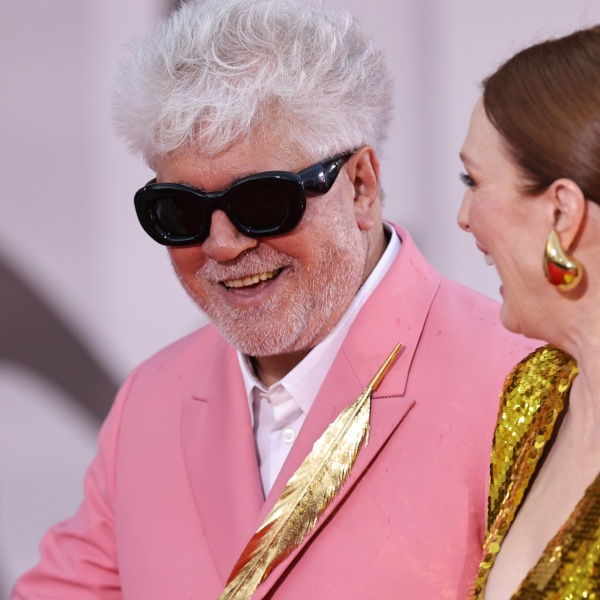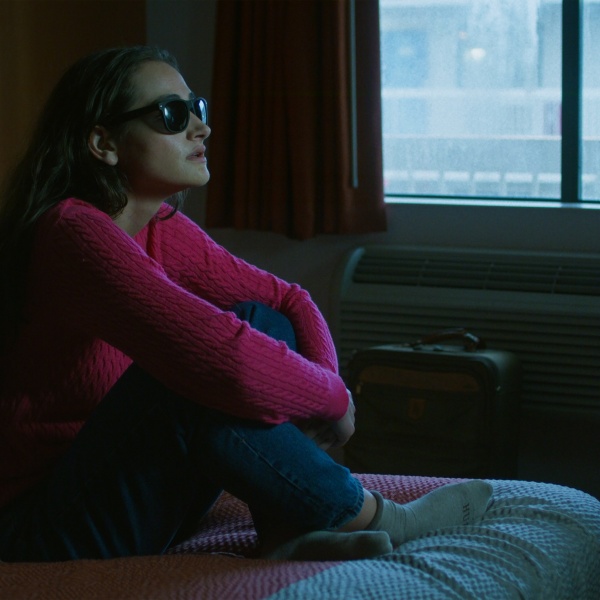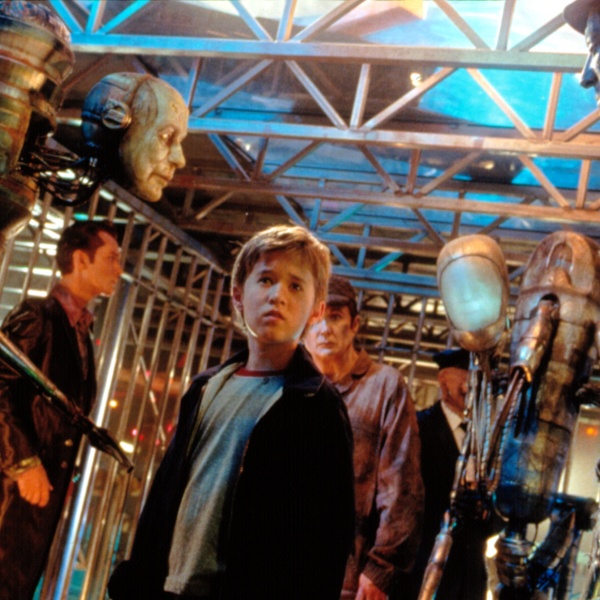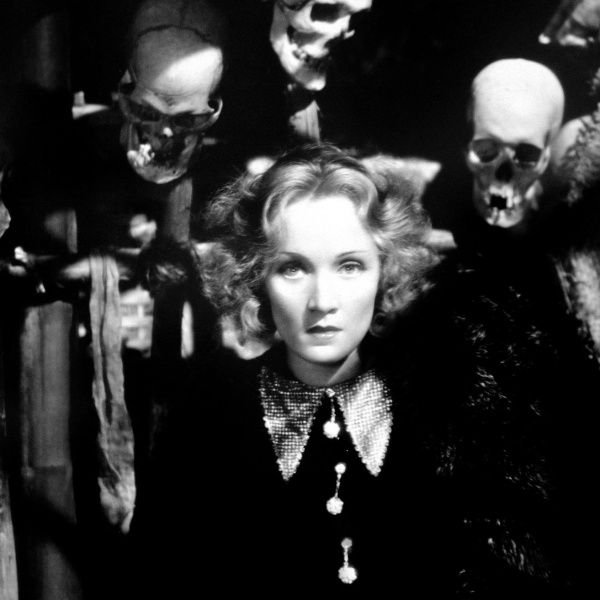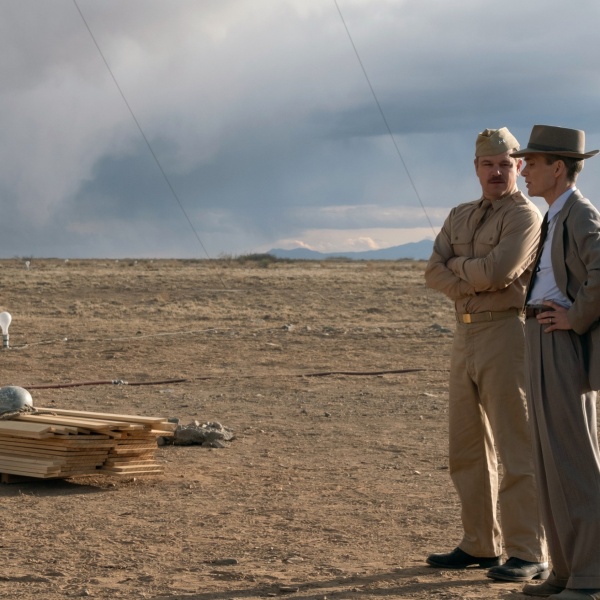At a press conference the day before the start of the 2023 Cannes Film Festival, artistic director Thierry Fremaux defended Johnny Depp, warded off complaints about the digital ticketing system, and declined to comment on Woody Allen. Again and again, he redirected the conversation to the movies.
“So you’re not really asking about the cinema?” he responded to one journalist. “I won’t talk about films that aren’t here,” he said later.
Fremaux has a history of deflection when it comes to the delicate navigation of cultural and political subjects at the center of the world’s most prominent film festival; a wrong word can set off a media firestorm and this year many distractions loom.

There’s Depp, who appears for a few minutes in opening selection “Jeanne du Barry” (“I’m interested in Johnny Depp as an actor,” Fremaux said) and has a directing vehicle at the market; the looming WGA strike, which prohibits American writers at the festival from promoting their work (“We’re not very well informed about what’s happening”), and another possible strike from the French electrician’s union that could literally threaten the festival’s ability to keep the lights on (Fremaux pointed out that Prime Minister Élisabeth Borne will meet this week with the trade union, and “we have nothing but positive dialogue” with them).
He also addressed a recent open letter from “Portrait of a Lady on Fire” star Adele Haenel, in which she criticized the festival for supporting the work of Gerard Depardieu, Roman Polanski, and others. “They’re ready to do anything to defend their rapist chiefs,” she wrote.
“She’s very radical, but it’s an erroneous comment,” Fremaux said. “It’s misplaced. She didn’t think that when she came to Cannes unless she suffered from a crazy dissonance. Now she’s speaking in this vein. People use the Cannes Film Festival to talk about world problems. I think it’s fine… but you wouldn’t be here complaining that you can’t get tickets if you thought we were all rapists.”
Fremaux acknowledged that the spotlight on Cannes leads to wider discussions, but resisted giving them equal weight. “It’s a major event that has to express certain issues,” he said. “Above all, we are here to express the state of current cinema.”
On that subject, another kind of drama stands out. Three years out from the pandemic that canceled the 2020 edition, box office for arthouse movies around the world continues to struggle, and skepticism mounts about future prospects. Even as Cannes emphasizes the power of the big-screen experience, it’s a difficult business model for all but a handful of name directors and the biggest commercial releases. Cannes has a few of those (“Indiana Jones and the Dial of Destiny” premieres this year, a year after “Top Gun: Maverick” took off; so does Wes Anderson’s “Asteroid City”) but its Official Selection is dominated by work that may not find an easy path after the festival.
“I have no concerns about that,” Fremaux told IndieWire in a separate interview ahead of the press conference. “The big screen has kept all its magic. It is even more important than before.”
Fremaux noted that the festival turned away 10,000 applications for industry accreditations this year (but didn’t reduce the number of press). The programming team watched 2,000 films for its lineup of roughly 70 features (more may be added on the fly). Many of the 21 films in competition hail from filmmakers who have been acclaimed for decades, raising questions about whether newer generations are delivering sufficient work that could crack the race for the Palme d’Or.

This year’s competition features previous winners like Ken Loach (“The Old Oak”) and Nuri Bilge Ceylan (“About Dry Gasses”), but only one directorial debut (Ramata Toulaye-Sy’s “Banel and Adama”). Fremaux insisted that Cannes had to strike a balance between acknowledging newcomers and supporting the old guard. “This is all the more important since the cinema must face a future whose contours are unknown,” he said. “Later, we will recall young filmmakers discovered in 2023, but also that this year there was Martin Scorsese.”
Fremaux programmed Scorsese’s “Killers of the Flower Moon” out of competition at the behest of Apple, which reportedly wanted to avoid the pressure of an awards race this early in its lifecycle (it opens theatrically this fall). The Cannes programmer praised Apple for partnering with Paramount to give the movie a wide release — both in the U.S. and France. “Apple will become a big voice in cinema,” he said. “It basically already is.”
That statement strikes a contrast to the festival’s relationship with Netflix, which remains banned from the competition unless it agrees to adhere to France’s 15-month theatrical window. Even there, Cannes exerted some influence; conversations around the streamer at the festival impacted broader discussion of the streamer’s presence in France. Last year, Netflix made a deal with the French cinema guilds to invest at least $45 million in at least 10 French or European films over the next three years. Among the first of these is “Jeanne du Barry,” and while Netflix doesn’t have distribution rights it has a de facto presence on opening night. “This is a virtuous rule,” Fremaux told IndieWire. “Netflix is welcome in French cinema.”
As for other American studios, Fremaux managed to attract Disney not only with “Indiana Jones” but also the Pixar-produced closing night entry “Elemental.”
“I would have dreamed of being able to present ‘Oppenheimer,’ ‘Poor Things,’ or ‘Barbie,’” he said, citing the latest anticipated works from Christopher Nolan, Yorgos Lanthimos, and Greta Gerwig. “That was not possible due to timing issues. They are three immense filmmakers. American cinema is so rich that the suitors are numerous.”
At the other end of the spectrum, Cannes seems more invested in attempting to address distribution concerns across the festival. The autonomous Directors’ Fortnight sidebar (aka the Quinzaine), which artistic director Julien Rejl takes over this year, previously allowed Netflix films to play at the festival under Rejl’s predecessor, Paolo Moretti. Now, the policy is identical to the one for official selection requiring a French release.
“These filmmakers feel that films are meant to be seen on the big screen at first,” Rejl said in an interview with IndieWire. “The question could be, ‘Why does a streaming service need a big screen in Cannes, if the film is then going to be broadcast on a small screen?’ It doesn’t make sense.”
Rejl enters the revolving door of the Fortnight leadership (he’s the fifth person to hold the perch in 15 years) with a background in sales and distribution at the French film company Capricci. That gives him an added perspective on the challenges facing the riskier — and mostly lower-profile — selections at Fortnight this year. For the first time, the entire 19-film program culled from 4,000 submissions will screen at 30 cities around France for one week after the festival. The festival has also offered to provide an advertising campaign, trailer, and poster for each film to help them present themselves to potential buyers.
“I felt if I wasn’t the one to coordinate and organize the promotion of those films myself maybe it would be hard to find audiences for them,” he said. “That’s why we launched this June event.”
The highest-profile selection in Rejl’s program is Michel Gondry “The Book of Solutions,” but much of the lineup is edgier with less obvious selling points, from Sean Price Williams’ anarchic American road trip saga “The Sweet East” to “The Feeling That the Time For Doing Something Has Passed,” a deadpan BDSM comedy from New York filmmaker Joanna Arnow.
Rejl said he avoided films that seemed as though they might accept Fortnight as a consolation prize if the official selection rejected them. “I don’t want the Quinzaine to be seen as second best,” he said. “Maybe if a film aims for official selection and doesn’t get in, then it should go to Venice.” While every competition film at Cannes faces overblown expectations, Rejl tempered the ones for his own selection. “I’m not looking for perfection,” he said. “I want to see people showing things that have never been seen.”
Down the road at Critics Week, the other autonomous Cannes section focused on first-timers, artistic director Ava Cahen hit a similar note. “To discover new auteurs is a rare chance to enrich this history of cinema with new voices, new names, new perspectives,” she said, noting the success last year of Charlotte Wells’ debut “Aftersun” in the section, where it was acquired by A24 and went on to score Paul Mescal an Oscar nomination. “It is more important than ever to encourage auteur cinema and emerging filmmakers,” she said, “but also bold producers and distributors, as well as courageous sales agents and film programmers, and to trigger the curiosity of audiences.”

In lockstep with the rest of the festival, the seven-movie Critics Week competition also requires a theatrical release in France. “I will always stand on the side of movie theaters, because it was in theaters that I learned to love cinema,” Cahen said. “It is in the cinema that we cultivate our own curiosity, it is in the cinema that we dream big. But we also know that platforms are very efficient at spreading new talents and they have always been very interested in our exploratory work.”
Selections from Critics Week will also travel beyond the festival to play at film events in Marseille, Corsica, Morelia, Martinique, and — naturally — Paris. The lineup ranges from satiric sci-fi (“Tiger Stripes”) to Korean horror-comedy (“Sleep”), and collectively they strike a significant contrast to the veterans dominating competition this year. “I think that the younger generation has a lot to teach us,” said Cahen, who is 37. “They prove that cinema is not dead at all. The whole history of cinema is made of this balance between established and emerging directors.”
Fremaux echoed. “It’s a beautiful coincidence to see this mix of generations, between the masters and tomorrow’s auteurs,” he told IndieWire. At the press conference, he returned to that point. “People may say that in 2023 you had this dialogue between generations,” he said. “The cinema holds its future in its own hands.”



